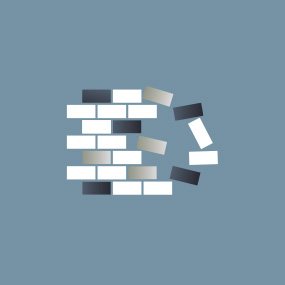Is your customer’s house ready for the next earthquake?
CEA homeowners earthquake insurance policies provide your customers with the strength they need to recover from a damaging earthquake.
Talk to your customer about the CEA earthquake-coverage options that fit their needs and budget. And use our premium calculator to help get them a quick earthquake insurance price estimate.
Did you know?
A homeowners policy doesn’t cover earthquake damage.
A CEA earthquake insurance policy can help pay for damages to your customer’s house or belongings.
CEA homeowners coverage options*

Home (dwelling)**
Can be purchased alone or with other coverages. Covers earthquake damage to your customer's house and structures attached to it, like a garage. Upcoming policy options changes will affect deductible options. Deductibles available are 5%, 10%, 15%, 20%, or 25%. For new policies written on or after August 1, 2023 and renewals on or after November 1, 2023, homes with a Coverage A dwelling limit greater than $1,000,000, or dwellings built before 1980 on a raised or other type foundation that do not have a verified retrofit, are only eligible for a 15%, 20% or 25% deductible. Learn more about our 2023 Policy Option Changes.

Personal Property**
Coverage to repair or replace your customer's covered personal belongings if they are damaged in an earthquake.

Loss of Use
A necessity for additional living expenses if your customer must live outside their unit because of earthquake damage or as directed by a civil authority. This coverage never has a deductible.

Building Code Upgrade
Rebuilding after an earthquake generally must be done to current building-code standards—this coverage helps with the added costs.

Emergency Repairs
Handy coverage when your customer needs to make urgent, necessary repairs after an earthquake to help protect their house from further damage, such as plywood to board up damaged windows. The first $1,500 has no deductible.

Breakables
This coverage helps replace insureds’ valuable fragile personal property like wedding china, glassware, crystal, ceramic, pottery, porcelain, or marble items that are broken because of an earthquake. Available for new and renewal policies written on or after January 1, 2025.

Exterior Masonry Veneer**
Not available for new policies written on or after August 1, 2023 and renewals on or after November 1, 2023.
- Get more details about our homeowners policy coverages and deductibles.
- Check to see if your customer qualifies for a discount of up to 25% on their CEA earthquake insurance premium.
Ready to sell a CEA policy?
*We encourage you to read the entire CEA policy—and its policy declarations page—to understand coverages and how they work. Exclusions and special limits apply. All terms and conditions of CEA insurance coverage are found in the CEA insurance-policy form. Refer to a sample policy, below.
Learn more by taking a free agent training course. Licensed California agents can earn CE credits.
**

